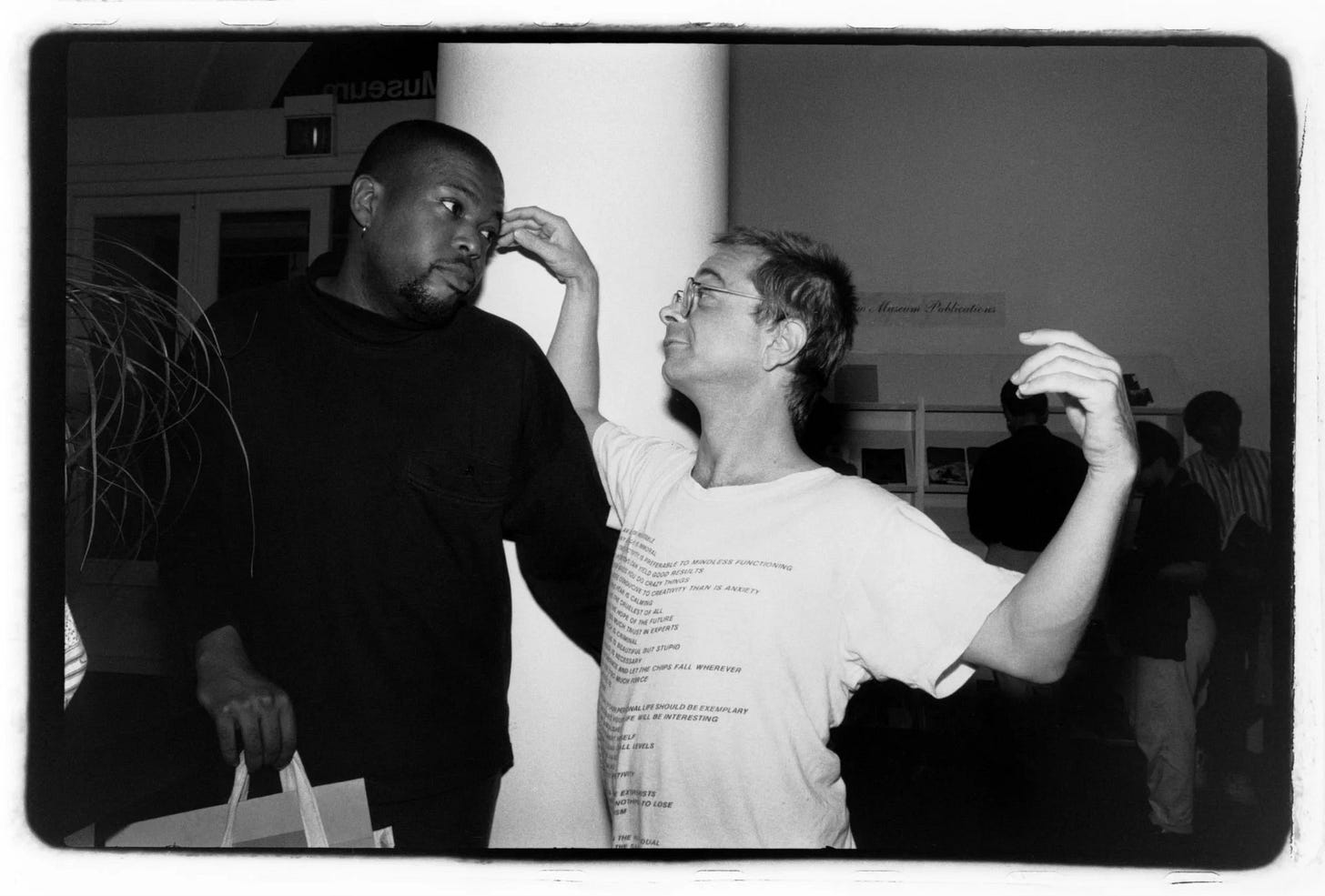Tender demolition
tenderness demolishing
Over the last few years I became obsessed with the fiction and criticism of Gary Indiana. He passed away a week ago at the age of 74. Getting to grips with his body of work was like discovering a new tonal sequence in music for me. It allowed me to think about what sentences can do in a way that made reading exciting again. I never him, sadly, and my condolences to all those who knew him.
I’d been building up to writing something about him, be that a book chapter or an essay, slowly, with nothing really fomenting aside from excessive notes and lists of quotations. Hastened by his death last week, Orlando Reade and Chris Page invited me to write a tribute for Effects Journal. And so I did. There’s much I could have said, and still want to. The essay titled is intended to make Alicia Keys’ voice bleed in your ear.
Indiana’s work was singular, brutal, and very fucking funny. I tried to describe it in an email to a friend in May 2023 and did so as follows:
“Your drawing of the connection between Eliot and Wordsworth in particular got me thinking about something that novels perhaps can do that poetry cannot always do so easily in terms of the disenchantment of psychic and social reality.
The last few years I've been working through the oeuvre of Gary Indiana, a lesser-known associate of Kathy Acker, Dennis Cooper and Brett Easton Ellis (and a superior writer to all three). A friend introduced me to his novels and he is, perhaps, the most interesting living prose fiction writer that I have stumbled across. His work is cruel, scathing, inexhaustible and brutally funny. He has many targets, but perhaps his most common one is the embodiments of the American bourgeoisie in its cultural formations since the late 80s onward, in the aftermath of Reaganism and with the excessive wealth and spending power that they accumulated in the 90s (most of his novels were written before 9/11, too).
In his crime trilogy: Resentment, Three Month Fever, Depraved Indifference, each novel takes up a well-known murder case that became a mass media spectacle (respectively: the Menendez brothers, Andrew Cunanan's murder of Gianni Versace, Sante and Kenneth Kimes). You can tell that Indiana has done extensive research into these cases as well as their place in the national psyche (I think with TMF he actually looked at the police records about Andrew Cunanan). What he does in these novels is very carefully make explicit the constant dependency of bourgeois wealth, the grotesque excess of consumption and (to draw in your beautiful reading of Klein) the kinds of idealisation that the pursuit of it requires, and the way that the idealisation occurring within these damaged and disgusting subjects functions as a way of blinding them to the extreme perversion of their interpersonal actions, resulting in each novel in an act of murder.
What I find particularly impressive is the way that Indiana manages to inhabit the thought patterns and processes of the most damaged and violent bourgeois subjects, while the lives that they lead are defined by chintzy glamour and excessive wealth, and push the relation between inner psyche and worldly existence to a climactic end – in what is a heavily fictionalised narrative.
The way that the novels balance inner and outer reality is so careful in the crime trilogy as to be barely perceptible. I think the novels are a kind of stylistic nihilism exactly as Jacobi accuses the work of Fichte as containing, there is no transcendence, no God, no salvation, only the brute cruelty of the world. There is another manoeuvre that happens within the humour of his work but I haven't, yet, found a language in which to pin it down.
Certainly, the enjoyment of the novels is that they are bleakly funny. I've attached a passage from Depraved Indifference that briefly slips into the perspective of an Argentine housekeeper of one of the bourgeois brutes. It doesn't necessarily illustrate the element of Indiana's work that I'm describing but it certainly illustrates something about the sharp extremity of his style.”
Funnily enough, lots of these thoughts found their way into the essay. A testament to the importance at correspondence. Even though I’m shit at it (apologies if I owe you an email).
(Gary Indiana with Hilton Als in the late 80s)
For Plinth I wrote about Victor Boullet’s exhibition of paintings at The Artist Room in Soho. It’s now in its last week. I thought it was great. Boullet also messaged me and said he liked the piece, which was nice. I also wrote about the last Yorgos Lanthimos movie, which I hated. He’s a hack when he’s trying to be smart. But Poor Things was good because he’s good at stupidity.
Chino Amobi has finally released a follow-up to Paradiso, his 2017 record that I think is one of the best pieces of contemporary music. You can listen to Eroica on bandacamp.
The title of this post is taken from Clinical Wasteman’s response to my Gary Indiana essay on the rotting corpse of Twitter. Check out his music in the stellar Triple Negative. He once co-wrote this essay on childhood that I think is brilliant.



